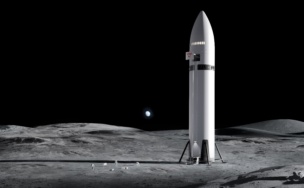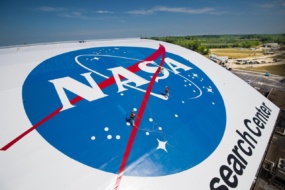NASA is facing dramatic and unprecedented cuts to its science program funding in the president’s budget plan for fiscal 2026, should it become law.
But the story isn’t over yet, and advocates for space science are pushing back. Yesterday, the Planetary Society brought together 20 space organizations on Capitol Hill to lead a day of action in support of funding NASA science programs.
“We’re not talking about delays in scientific exploration,” Planetary Society president and notorious science guy Bill Nye said to a crowd of supporters yesterday. “We’re talking about the end of it.”
The budget story: As anyone following the state of government (or lack of one) knows, Congress has yet to come to an agreement on the budget for FY2026, forcing the government to shut down as of Oct. 1 The Trump administration’s budget, released in May, would cut NASA funding by a quarter YoY—from an implemented $24.9B FY2025 budget to $18.8B for the upcoming year.
- Most of those cuts affected science programs.
- Mars Sample Return would be cut entirely.
- The Chandra X-ray Observatory would also be phased out, and the Roman Space Telescope significantly delayed.
House and Senate appropriators rejected these steep cuts. The House appropriations committee approved $24.8B for NASA, and the Senate equivalent marked $24.9B, each effectively keeping funding flat YoY. But those budgets haven’t passed the full chambers—and with the government shut down, 15,000 NASA employees are on furlough.
The science guy speaks: Nye and a cadre of space science supporters took to the steps of Capitol Hill yesterday to speak out in support of funding NASA science. According to Nye, NASA science is “a bargain,” and contributes much more to the economy than it takes out. Not only that—for the Planetary Society, the cuts represent an existential threat to exploration.
“Commercial companies may provide transportation to orbit, and they may provide some major spacecraft components, but when it comes to exploration, there is no private option,” Nye said. “There is no business case for the search for extraterrestrial life. There is no profit to be made studying Saturn’s mysterious polar storm.”





